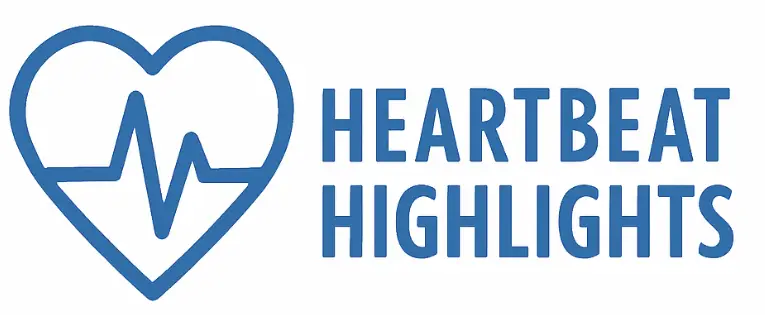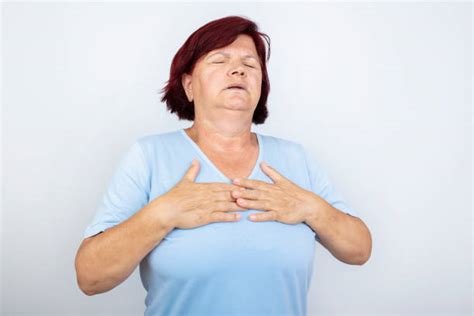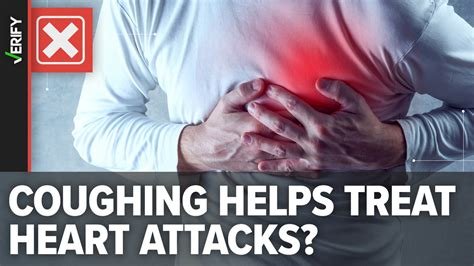Recognizing the often-overlooked symptoms that could save your life.
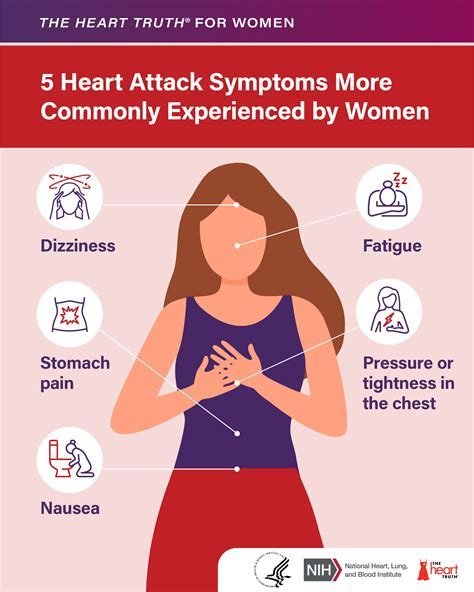
Introduction: Why This Conversation Matters
Heart disease is the leading cause of death for women worldwide — a fact that surprises many. While men’s heart attack symptoms often get most of the attention, women’s symptoms can be much more subtle, making them easier to overlook or dismiss as something minor.
The problem is, those “small” symptoms may be your heart’s quiet cry for help. And if they’re missed, the consequences can be life-changing or even life-threatening. By learning to recognize these warning signs, you empower yourself to take action sooner — possibly saving your life or the life of someone you love.
Women’s Heart Disease: A Different Story
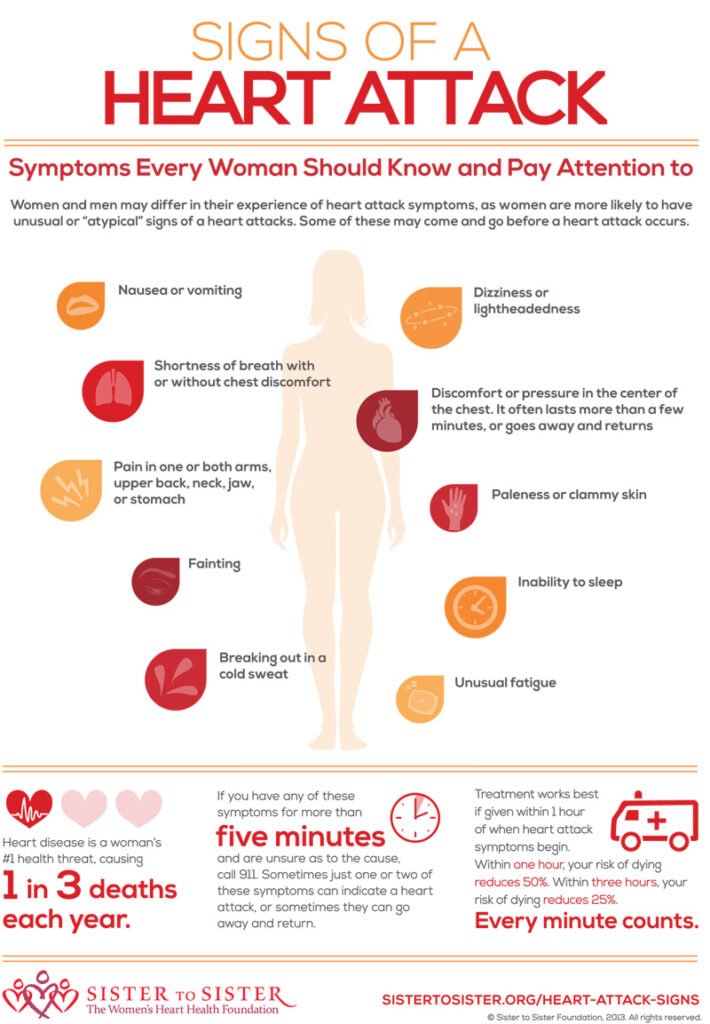
Most of what we’ve seen in movies and TV about heart attacks involves sudden chest pain, a clutching of the chest, and collapsing. That’s a reality for some, but for women, the picture can be very different.
Women are more likely than men to experience symptoms that don’t fit the “classic” profile. This includes discomfort that’s not centered in the chest, fatigue that seems unrelated to activity, and even symptoms that mimic anxiety or indigestion.
Why the difference? Hormonal factors, differences in plaque build-up patterns, smaller coronary artery size, and unique vascular responses all play a role. But perhaps most importantly, research historically focused on men for decades, leaving a gap in public awareness about women’s unique symptoms.
Understanding the “Subtle” Symptoms
Here are some common ways heart disease — and heart attacks — can present in women. The key is that these symptoms often appear gradually, or they can be dismissed as stress, aging, or digestive issues.
1. Unusual Fatigue
We all feel tired sometimes, but fatigue related to heart problems is often profound and unusual. Women describe it as a bone-deep exhaustion that makes even small tasks feel overwhelming. It might appear days or even weeks before a heart attack.
Why it matters: Your heart is a pump that supplies oxygen-rich blood to your body. If it’s struggling, your muscles and organs may not get enough oxygen, making you feel drained even when you haven’t exerted yourself.
2. Shortness of Breath
Feeling winded after walking up stairs is normal if you’re out of shape or carrying something heavy. But if you suddenly find yourself struggling to breathe during light activity — or even while resting — it could be a warning sign.
Why it matters: When the heart’s ability to pump is reduced, fluid can back up into the lungs, limiting oxygen exchange and making breathing difficult.
3. Pain or Pressure in the Neck, Jaw, or Back
Instead of the stereotypical “elephant on the chest,” many women feel pressure or aching in less obvious areas like the neck, jaw, upper back, or even between the shoulder blades.
Why it matters: Pain signals from the heart can be “referred” to other areas due to shared nerve pathways. Women’s heart-related pain is more likely to be diffuse and harder to pinpoint.
4. Nausea, Indigestion, or Stomach Pain
These can easily be mistaken for food poisoning, acid reflux, or stress-related digestive upset. But persistent or unusual stomach discomfort — especially when paired with other symptoms — can be a red flag.
Why it matters: The heart and digestive system share nerve connections. Reduced blood flow to the heart can cause symptoms that feel like GI problems.
5. Lightheadedness or Dizziness
Feeling faint or unsteady could indicate your brain isn’t getting enough blood and oxygen.
Why it matters: This can result from a sudden drop in blood pressure, abnormal heart rhythms, or other heart-related issues.
Why Women Sometimes Miss the Signs
Many women attribute these symptoms to stress, lack of sleep, or “just getting older.” Cultural expectations also play a role — women often prioritize caring for others and ignore their own health concerns until symptoms are severe.
Unfortunately, waiting can mean the difference between a quick intervention and permanent heart damage. That’s why awareness is essential.
Real-Life Relevance: When “Something Feels Off”
One of the most important things you can do is listen to your body. If something feels off — even if you can’t describe it perfectly — it’s worth getting checked out.
This doesn’t mean panicking over every twinge, but rather paying attention to patterns:
- Is this fatigue different from what you usually feel?
- Is your shortness of breath occurring at rest or with minimal activity?
- Are you experiencing new, unexplained pains in your neck, back, or jaw?
If the answer is yes to any of these, it’s worth contacting a healthcare professional.
When to Seek Medical Evaluation
If you experience sudden, severe symptoms — such as intense chest discomfort, shortness of breath, or pain radiating to your arm or jaw — call emergency services immediately.
If your symptoms are more subtle but persistent or worsening, schedule an appointment with your doctor or a cardiologist. Early evaluation can mean earlier treatment, which dramatically improves outcomes.
The Role of Screening and Prevention
Knowing your risk factors is just as important as recognizing symptoms. For women, these include:
- High blood pressure
- High cholesterol
- Diabetes
- Smoking
- Family history of heart disease
- Autoimmune diseases (such as lupus or rheumatoid arthritis)
- History of pregnancy complications (like preeclampsia or gestational diabetes)
Regular check-ups, blood pressure monitoring, and cholesterol screening help detect problems before they lead to symptoms.
Future Outlook: Improving Awareness and Outcomes
Public health campaigns are now increasingly focused on women’s heart health, aiming to close the awareness gap. More research is being conducted on how heart disease develops and presents in women, leading to better diagnostic tools and treatments.
As awareness grows, so does the potential to save lives — but the first step is individual knowledge and vigilance.
Takeaway
Heart disease in women can be a quiet threat, whispering instead of shouting. By recognizing subtle signs like unexplained fatigue, shortness of breath, or discomfort in unexpected areas, you can act sooner and protect your heart health.
If you ever suspect something is wrong, don’t wait — get it checked. Your heart will thank you.
References
- U.S. Centers for Disease Control and Prevention – Women and Heart Disease Facts
- American College of Cardiology – Heart Disease in Women: Understanding Unique Risks and Symptoms
- National Heart, Lung, and Blood Institute – Heart Attack Symptoms in Women
Harvard Women’s Health Watch – Recognizing Heart Disease in Women
Disclaimer
This article is for educational purposes only and should not be taken as medical advice. Always seek the guidance of a qualified healthcare provider with any questions you may have about your health or a medical condition.
